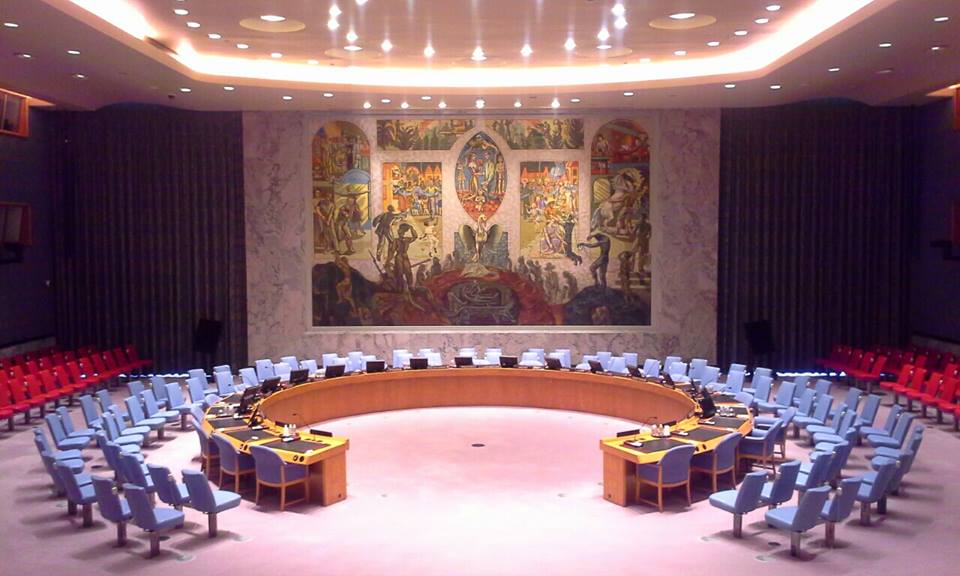The United Nations Security Council

Committee: United Nations Security Council
Welcome to the 22nd Century. This year the UN Security Council is set in 2115, where the global order and its dynamics have evolved drastically in the wake of WWIII. Nonetheless, the UNSC is still as influential as it once was, dealing with international concerns regarding sovereignty. Some of the country representatives present were the United Kingdom, Turkey, Zimbabwe, the US and Mexico. This morning’s second committee session was concerned with two important crisis. In Papa New Guinea, a technology blackout has been instigated by the government, as an infringement on basic human rights in the context of the 22nd century. In Latin America, the council has had to address the issue of a possible Columbian invasion of Panama.
This last issue has instigated a lively discussion regarding the possibility of UN aid in Panama, whose government representative has begged the Council for help. After an investigation regarding the nature of the alleged invasion, it appears that soldiers from Panama have carried out instances of rape and torture; the opposing forces are built of Panamanian citizens with drug cartel affiliations, and the investigation has until now been inconclusive concerning the origin of these opposing forces, although it is believed that they are dealing with the actions of a foreign country, with Columbia still being considered as a prime suspect.
As the representative of Panama stepped in for a round of questions, she expressed the dire situation at hand, asking once again for UN intervention and support. Other governmental representatives then questioned her on the état des lieux, making it clear that Panama was convinced of Columbia’s implication in the crisis. She assured the Council that they were addressing the civilian’s security by directly dealing with the drug cartels and addressing the foreign threat.
The first draft resolution which suggested the dispatch of the UN military force (estimated at about 5000 men) was rejected. The decision to merge the two directives compiled, which the representative of Algeria stressed the need to refrain from putting Columbia in the spotlight as well as using words such as “condemn” keeping in mind it is important not to isolate the state currently undergoing scrutiny (Columbia). Russia and France were the most adamant on rejecting the incentive to send UN aid. Russia particularly underlined the facilitating role of the UNSC as peacekeepers, stating he would veto against UN intervention. On the other hand, Iran and China are pushing for UN action. So far, UN intervention is still debated, as the origins of the unrest at the border of Panama and Columbia still remains unclear.
As the end of the second commission approached, the dais left the room for a feedback session. The general feeling was overall satisfactory, although the delegates were hungry for yet more critical crisis elements. Kim Kidani, the crisis director of the committee, is satisfied with the skyrocketing enthusiasm of the delegates participating in the committee session, and the forward-looking committee hopes to see the introduction of more futuristic debates surrounding the use of space technology as the conference continues.
